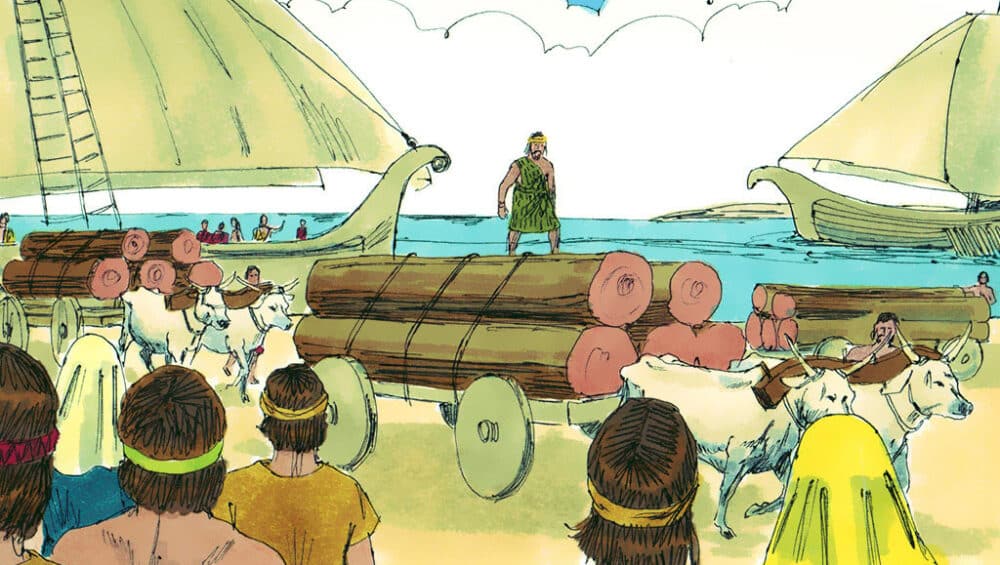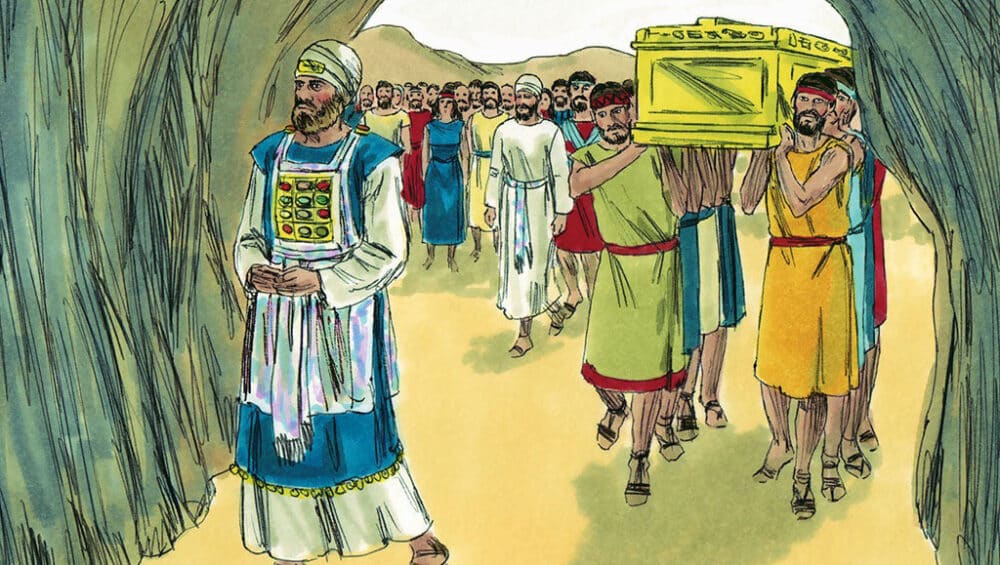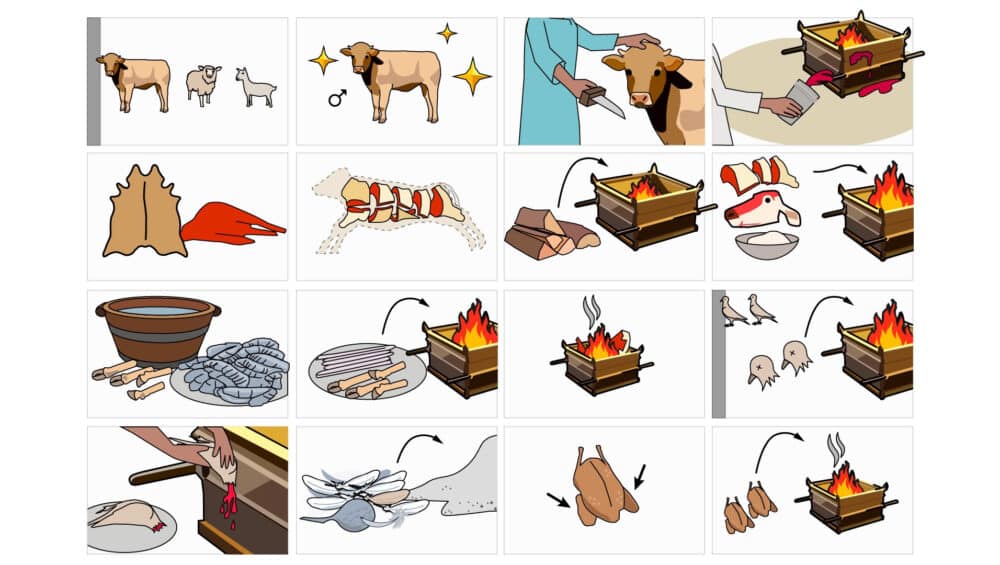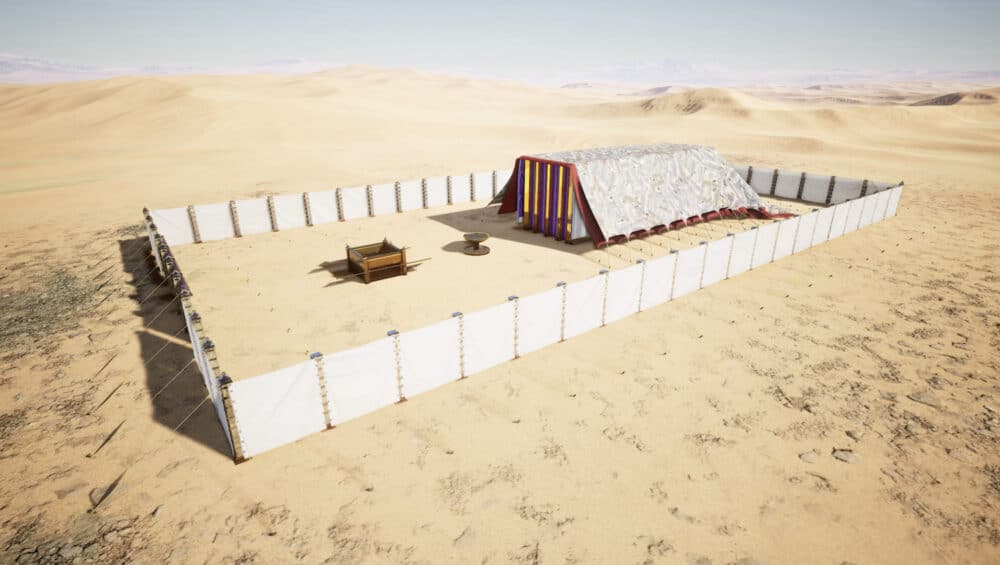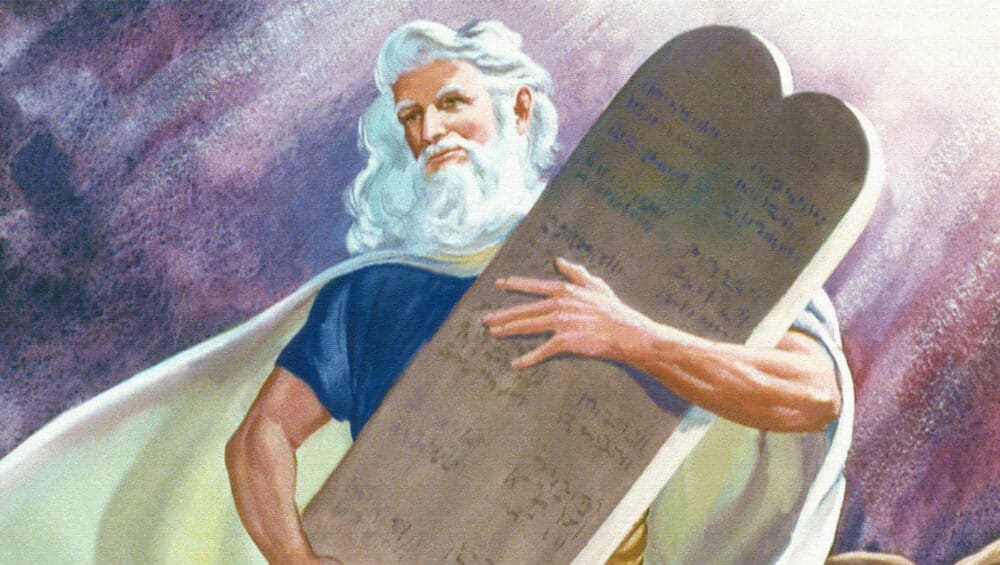Sweet Publishing / FreeBibleimages.org.
We are now 1/3 of the way through the Bible. Congrats! And, look how much we have learned. There is a lot more to come! If you are new to Livin’ Light’s Bible-In-A-Year challenge of discovering God’s love for us and His purpose for our lives, Welcome! Here is the format for this great adventure: The daily reading assignment is posted at 5 a.m. After each day’s reading, Leigh An Coplin, the blog host, shares observations and poses questions about difficult passages to Rob Fields, who studied Christian Education at Asbury Seminary and currently teaches Biology in the Orlando area. To start from the beginning, click on 365 Bible Readings and scroll down to Day 1. The reading schedule is taken from The One Year Chronological Bible NLT.
Today’s Reading
— 2 Samuel 24:1-9
— 1 Chronicles 21:1-6
— 2 Samuel 24:10-17
— 1 Chronicles 21:7-17
— 2 Samuel 24:18-25
— 1 Chronicles 21:18-22:19
(979-970 BC) Click here for a timeline of the entire Bible.
Questions & Observations
Q. (2 Samuel 24:1,9: 1 Chronicles 21:1, 5): The 2 Samuel version says that David ordered the census. 1 Chronicles says it was Satan. There is also a difference in the census numbers between the two books. Why would God’s anger against Israel make David want to take a census? And, why was God angry anyway?
A. It is interesting to me the way that this version of the reading so clearly identifies variations in the text. You could say that both Satan and David were involved in the sin because Satan could have easily tempted David to do it, but David is ultimately responsible. This is also, to me, just one more way the author of Chronicles portrays David in a more positive light: rather than the census being just “his” idea, Chronicles tells us that the devil put the idea in his head. I do not know why the numbers are different in the two versions of the census.
Regarding God’s anger, we also don’t know what it is about Israel’s actions that prompted God’s wrath. But what appears to have made God angry about the census itself is a bit easier to understand. The census was a military one: David is measuring the size of his army. This is a customary action of a king who is preparing to go to war. So that’s one possibility about what angered God: that David was planning to march his armies in (presumed) defiance of God’s command to be at peace. Another possibility is that this is a vanity/pride move for David: He wants to know how many troops he has so that he can brag about it. A third possibility is that the census revealed that David was trusting a bit too much in his armies, and not in God. That’s about all we’ve got here.
Q. (2 Samuel 24:10-17, 1 Chronicles 21:1-17): I like the 1 Chronicles version better. It is more descriptive. Three years is a long time. I think I would have chosen Door #3 also, but if I would have realized that it would cost 70,000 lives, I may have chosen another option. David probably didn’t realize the plague would cause so much death?
A. A famine could have killed many more: three years of poor crop growth can cripple a nation TODAY! And who knows what they would have lost (perhaps Jerusalem itself) if he chose losing to his enemies. I suspect David took what he knew to be the more immediately painful path, and just “have it done with.”
Q. (2 Samuel 24:24): It’s interesting that David respected God when building an altar to Him to stop the plague. Usually, free is good. Araunah obviously wanted to give it as a gift.
A. He did, but as we studied in the Law, God desired not what we get for free or cheap, but rather for us to sacrifice the best of what we have for Him. This is a big part of the reason that lame or otherwise affected animals were not acceptable as sacrifices: it was the cheap and easy way out, and missed the point of what God desired.
Q. (1 Chronicles 22:14-16): I’m just trying to picture how they moved so much building materials around then, especially the cedar. Also, it would be interesting to know how someone back then became skilled at something, like the goldsmiths, silversmiths, carpenters and stonemasons.
A. There are a variety of answers to movement of massive material in the ancient world. We know that the Egyptians used flat sleds or logs — with lots of slave labor — to move things like massive stones around for building the base of the pyramids. Materials could also be transported by caravan using burden animals like horses and donkeys, which could probably drag a considerable amount of weight behind it.
But there’s other ways too: the nations that supplied the cedar were north of Israel, so it is possible they could have used the waterways like the Jordan river or even the Mediterranean Sea to move massive trees around — wood like cedar almost always floats. The Phoenicians and Greeks were building massive ships in this era (maybe a little later) called Triremes that were massive and could have clearly carried a lot of people or other things as well (read about it here: http://en.wikipedia.org/wiki/Trireme). I think that gives you and idea of how it was done. It was most likely a combination of many factors.
Like almost all professions in the ancient world, craftsmanship was handed down from generation to generation in family lines. If your family fished for a living — as several of the apostles — you learned to fish. If your family worked with bronze or, later, steel, or jewels or other crafting materials, you would have most likely learned from them. In this era, there was no currency, so survival would have depended upon people’s ability to barter goods and services to meet their needs. You can think of this as “pressure” to be good at your family craft: If someone else in your village was better at making jewelry than you were, you were in trouble. But the family who was the best at it would have likely passed important trade skills down to the next generation. Additionally, there were no formal schools in this part of the world at this time — though there was what we would call “Bible” education in Jesus’ era, we’ll talk about that in due time — so you very likely could not count on anyone but your community to provide you with a “trade.”
For further explanation: There is a lot of undertones to this census, https://www.tenth.org/resource-library/articles/why-was-davids-census-a-great-sin/
Shop: Christian shirts get noticed. Check out these conversation starters: https://livinlight.org/shop/
Tomorrow’s reading: 1 Chronicles 23-25

